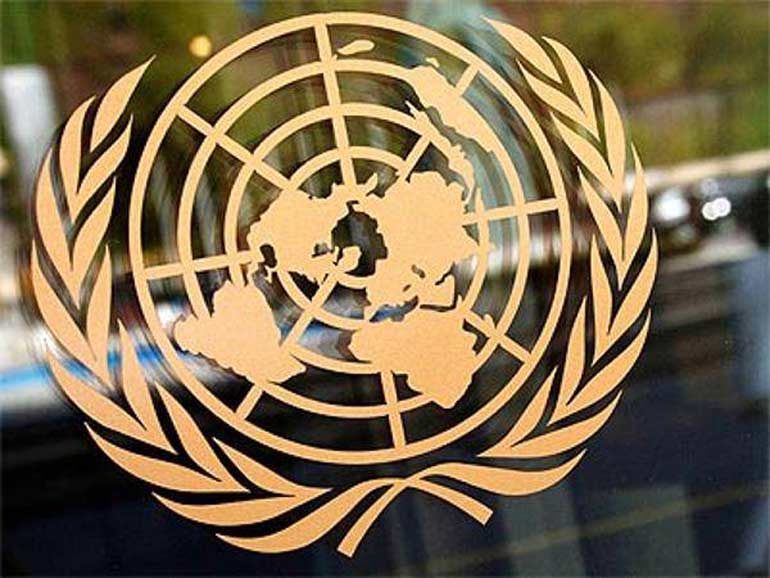Monday Feb 23, 2026
Monday Feb 23, 2026
Monday, 28 September 2015 00:00 - - {{hitsCtrl.values.hits}}

United Nations (Thomson Reuters Foundation) - World leaders on Friday adopted the most sweeping agenda ever of global goals to combat poverty, inequality and climate change, described by the United Nations secretary-general as “a to-do list for people and planet.”
Adopted in the shadow of the worst refugee crisis since World War II, the 17 Sustainable Development Goals, or SDGs, call for shared peace and prosperity and cap three years of debate and discussions.
The ambitious agenda addressing issues from education to the environment is to be implemented over the next 15 years with a big push globally to win public support for the goals.
The 193 UN member nations formally adopted the goals after an address to the United Nations by Pope Francis, who called the adoption “an important sign of hope.”
“Solemn commitments, however, are not enough, even though they are a necessary step toward solutions,” said the Pope as the Vatican flag flew for the first time outside the United Nations where security was heightened for his visit.
He said world leaders must follow through with “a will which is effective, practical, constant, with concrete steps and immediate measures” to protect the environment and end social and economic exclusion.
“The simplest and best measure and indicator of the implementation of the new Agenda for development will be effective, practical and immediate access, on the part of all, to essential material and spiritual goods,” he said.
The objectives replace the previous UN action plan, the Millennium Development Goals that were adopted in 2000.
Supporters say the SDGs go much further by addressing root causes of issues such as poverty and looking at means as well as ends. They also are intended to be universal, not just for the developing world.
“They are a to-do list for people and planet, and a blueprint for success,” said UN Secretary-General Ban Ki-moon after an opening ceremony with performances by Colombian singer Shakira and Benin’s Angelique Kidjo, UN goodwill ambassadors.
Nobel peace laureate Malala Yousafzai, representing youth at the United Nations, urged the gathering of world leaders to “keep your commitments and invest in our future.”
“Promise peace and prosperity,” said the teen, a prominent activist for girls’ education who was shot on a school bus in Pakistan in 2012 by the Taliban for advocating girls’ rights.
Supporters say the hefty task that lies beyond the three-day SDG summit that concludes on Sunday is implementing the 17 goals and their 169 accompanying targets into programs, policies and parliaments in member nations.
Such implementation, requiring trillions of dollars in investment, will be monitored and reviewed using a set of global indicators to be agreed by March 2016.
While critics have described the SDGs as too broad and ambitious, supporters argue the agreement is a positive step as a shared vision to improve lives globally.
“There is a huge gap between the world we live in and the world we want. These goals represent people’s aspirations and rights and they must and can be realised,” said Salil Shetty, Secretary-General of Amnesty International.